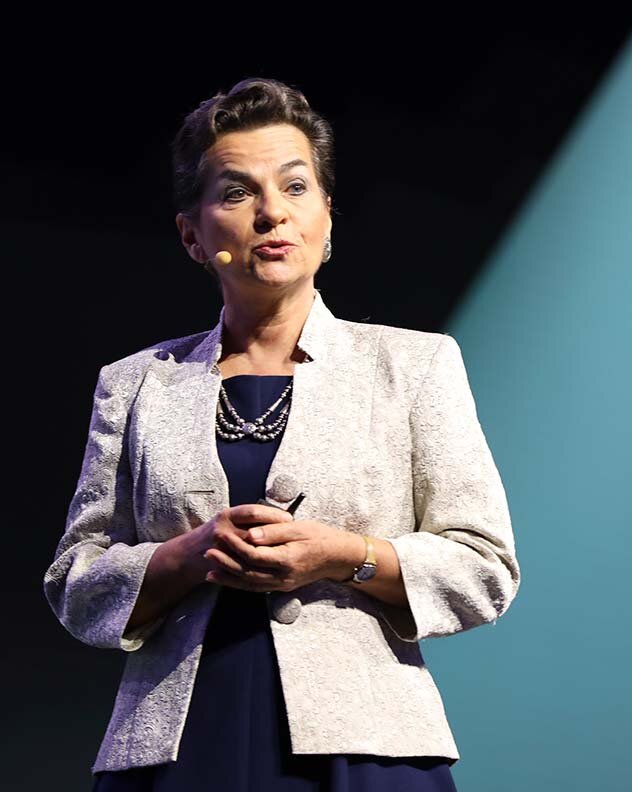International Women's Day 2021: A Feminine response to the climate crisis
By Hannah Temme
For as long as humans have had words the Earth has been associated with the feminine, and, like the land, with the women who create life. Now in a time where the earth is crying out perhaps it is not surprising that women are at the forefront of the climate crisis - both as victims and leaders in the fight against it.
Globally women are disportionately affected by climate change compared to their male counterparts because they make up the majority of the world’s poor. They:
have less access to education and opportunities of climate change resilience and adaptation techniques.
have less access mobility and chances to relocate from places hit by natural disasters and extreme weather.
make up approx. 80% of farmers globally and will be hit hardest when agrarian crises occur.
In the global north, women of colour in particular are more affected that their white counterparts because they disproportionately inhabit underserved areas where there are higher levels of food poverty, air and water pollution, and less investment in solutions
On a personal level, to women who have traditionally been more concerned with family and children and childbirth, the bleak look of their children’s future is very real fear, with many considering refraining from starting a family as a result.
Photo by @5byseven via Twenty20
Imbalance and the natural world
We all have varying levels of feminine and masculine energies within us. Men can have high levels of femininity and women can embody masculine energy too, because different levels of one or another does not necessarily correlate with gender identity.
We could delve into the imbalance between the masculine and feminine as the reason for the increasing disruption of the delicate balance between the world’s ecosystems but that is a whole blog in itself. For now let us settle with two understandings.
One - that masculine leadership, driven by independence and competition, though bringing us incredible development and innovation and not itself negative, when untethered from the feminine is left to run rampant to rape and ravage the earth. It has led to a capitalist and an ever ambitious system that is currently resulting in self-destruction. (Oh and let’s not overlook that this prominence of masculinity was not a coincidence but a result of the active oppression of femininity and those who represented it - in case you forgot).
And two - the deep connection the feminine has with the natural world. Women have traditionally embodied higher levels of femininity, therefore harbouring and valuing feminine traits of creativity, flow, nurture, and the emotional; being over doing; and a deeper connection with nature (though of course are not limited to these values!) It is no coincidence that the names humanity across history and continents have given the planet reflect care and healing, from Mother Earth to Pachamama to Gaia.
And so when the fragile natural rhythms and processes are out of balance it is felt and feared most deeply by those harbouring the feminine.
Perhaps the fact that women are on the front line pushing for adaptations to the climate crisis should be expected - we have the greatest cause. This is an opportunity to harness our greatest pain and threat and transform it into a power for leadership and global social restructuring. (Some are already on this path, but more of that in a bit).
So what does a feminine response to climate change look like?
Well it would look a lot like the way society would if there were a greater balance between the masculine and feminine forms of leadership, value and success.
And that would be a reinforcement of boundaries. A reminder nothing on earth is an independent entity and all things are connected. That all actions have consequences be it 100 days or 100 years. And so if we are to survive as a human race the first thing to is to halt exploitation of the natural world and to start living within our means even if it means removing the importance we place on exponential growth and GDP - an unattainable standard of success based on an intangible measurement of an imaginary currency. Shock, how ever will we cope?
A feminine response would involve a reassessment of what really matters to our survival, a willingness to adapt and give up convenience and luxuries. Introducing restorative methods of the planet to attain this on the understanding that in the long run we will be better off. Because the feminine looks further than the patriarchy has proven capable of doing.
It would look to solutions outside of growth and money and towards the emotional - the people, the beauty and the way of nature.
Most of all it would strive to reinstate balance.
Leading the Movement
Women are well represented in the climate movement, but we need to be the ones calling the shots to ensure that these traits and values are reflected in our global actions and decisions to have a chance at rewriting the future. And we are getting there.
In the UN, Christiana Figueres successfully led world leaders toward the Paris Agreement of 2015, supported by a female-strong team. In the UK we have Caroline Lucas leading the Green Party. In the US, Alexandra Ocasio Cortez is heading up the Green New Deal. Ugandan activist Vanessa Nakate, is one amongst many African women, including Ayakha Melithafa and Elizabeth Wanjiru Wathuti, making headlines for using her voice against rising temperatures and environmental instability. Leading activism in Europe we have the female figures of Greta Thunburg, Isabelle Axellson and Loukina Tille to mention a few.
It is essential to recognise the work of indigenous communities and leaders in the climate movement because their deep connection and understanding of the earth will be essential in establishing regenerative practices and recognising the world as a part of us. In cultivating the knowing that we are nature. Some indigneous female climate leaders include Hindou Oumarou Ibrahim, Artemisa Xakriabá and the late Berta Cáceres.
The online spaces are full of women and girls raising awareness and speaking out in defence of our earth. Some of my favourites include @greengirlleah, @earthbyhelena, @taltalkingpics @theeecogoddess @mikaelaloach @treesnpeace. Give them a follow for inspiration and education on the climate movement.
In the many environmental and conscious raising programmes I have attended in the last year women have made up over 75%, a reflection of how we are seeking solutions and alternative ways of thinking in our everyday lives.
These women have shown incredible courage in the face of oppressive and destructive systems and governments, risking their education, family, and even their lives. But their work is essential for the survival of life on earth. The femininity they embody and harness is the key to planetary healing and a chance of a thriving future.
For more information on a feminine response to climate change and recognising the role of women in healing our earth check out the organisation Tree Sisters, a global community of women sharing resources and actions.





